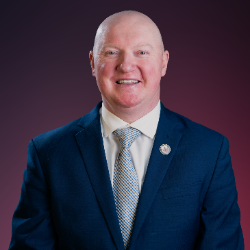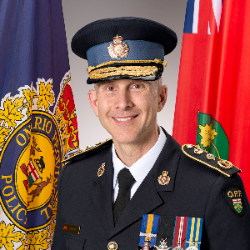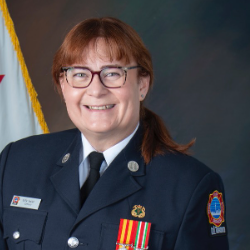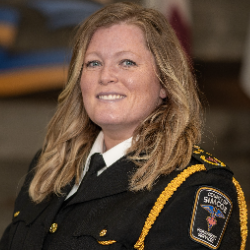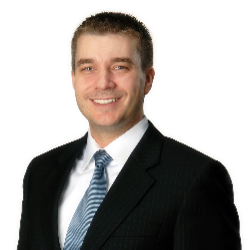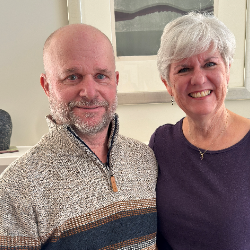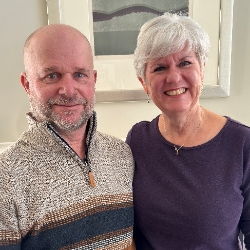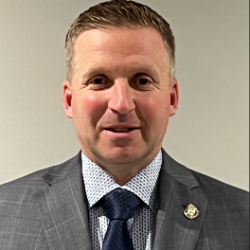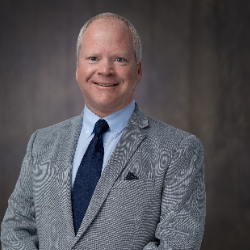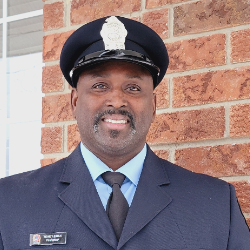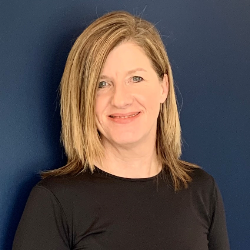Conference Program
- SOLD OUT – Thank you to all who have registered.
-
An Interactive Roundtable Discussion: What about the Families?
Tuesday, May 14 3:00 PM - 5:00 PM
Plenary Speakers
We invite you to participate in a thought-provoking roundtable session featuring Dr. Heidi Cramm, Ph.D., OT Reg. (Ont.), Professor, and Research Lead at the Families Matter Research Group & Garnet Families Network, Queen’s University. Together, we will evaluate advancements in family research and collaborative initiatives, delving into key findings and partnerships while addressing critical priorities for developing impactful programs that support the families of first responders and other public safety personnel. Your insights and contributions will shape the future landscape of family support initiatives in our community.
Date: May 14th, 2024, from 3:00pm to 5:00pm (EST)
Location: Toronto Hilton Airport Hotel
5875 Airport Road, Mississauga, ON L4V 1N1
Parking: $30 plus HST (daily rate)*Registration for the roundtable discussion is limited, and spaces will be allocated on a first-come, first-served basis.
-
Reception
Tuesday, May 14 7:00 PM - 9:00 PM
Sponsors
Join us for a Night of Excellence at the 2024 Ontario First Responders' Mental Health Conference Reception sponsored by the Garnet Families.
Garnet Families connects defence and public safety families with those who study, serve and support them. Garnet is a gemstone, most commonly a deep red colour that has historic associations across the ages with love, loyalty, healing, protection, and safe return to family. Like the gemstone, these characteristics are commonly representative of defence and public safety families and their unique experiences as they serve alongside to ensure the safety and security of our community and country.
Date: May 14th, 2024, from 7:00pm to 9:00pm (EST)
Location: Toronto Hilton Airport Hotel
5875 Airport Road, Mississauga, ON L4V 1N1
Parking: $30 plus HST (daily rate)Secure your place for a unique evening of networking, camaraderie, and connection! The reception, set in a laid-back atmosphere with refreshments and light hors d'oeuvres, is the perfect opportunity to engage with fellow attendees before the conference officially starts. Keep in mind that attendance is limited and will be granted on a first-come, first-served basis. Last year, the reception sold out quickly!
Thank you again to Garnet Families for sponsoring this years' Ontario First Responders' Mental Health Conference Reception.

-
Opening Ceremony
Wednesday, May 15 8:45 AM - 9:00 AM
Workshop Session
-
Voices from the Frontline: Evaluation Outcomes & First Responder Reflections on Insight Health Solutions’ WSIB First Responder Mental Health Pilot Program
Wednesday, May 15 9:00 AM - 9:25 AM
Workshop Session
In this session, members of the team evaluating Insight Health Solution’s WSIB program will describe treatment outcomes to date and share a summary of first responder experiences with the treatment program.
-
Keynote Address: A Message from the Commissioner of the Ontario Provincial Police
Wednesday, May 15 9:25 AM - 10:00 AM
Keynote Addresses
-
Workshop 1: Improving an Injured Person's Journey through WSIB - WSIB'S Mental Stress Injury Program Strategy
Wednesday, May 15 10:30 AM - 11:30 AM
Workshop Session
Workplace Safety and Insurance Board is here to help when someone is injured and ill at work. For those who are experience a mental health illness as a result of a traumatic event or exposure to trauma over time, and their employers, knowing what to expect as you work with WSIB is critically important to the recovery and return to work process. In this session, WSIB will take the audience through that journey of what to expect, while also sharing the strategy of how we are making things better and easier to work with us in 2024.
-
Workshop 2: Self-Care Essentials for Health Care Professionals Supporting Trauma-Exposed Professionals (TExP)
Wednesday, May 15 10:30 AM - 11:30 AM
Workshop Session
In this session, we will look into the critical importance of self-care for health care providers who work closely with trauma-exposed first responders. Explore practical strategies to foster personal well-being, maintain resilience, and strike a healthy balance while supporting those on the front lines. Gain valuable insights and essential self-care practices to navigate the unique challenges of supporting our valued first responders while prioritizing your own well-being.
-
Workshop 3: Prevention to Recovery Management, how stepped care continuums can support First Responders every step of the way.
Wednesday, May 15 10:30 AM - 11:30 AM
Workshop Session
This session delves into the comprehensive support continuum designed to address the unique mental health needs of First Responders. Explore the strategic integration of prevention, early intervention, and recovery management through a stepped care approach. Discover how this continuum provides tailored support at every stage, fostering resilience and well-being among First Responders. Learn about evidence-based practices and collaborative strategies that empower these essential professionals every step of the way.
-
Workshop 4: Moral Injury: The signature wound of public safety service and sacrifice
Wednesday, May 15 10:30 AM - 11:30 AM
Workshop Session
Like post-traumatic stress, moral injury (MI) is a type of stress response that follows a morally distressing situation. These morally distressing situations — or morally injurious events — arise when we feel our morals are violated, make us question “right” and “wrong,” and challenge our faith in the “goodness” of ourselves, others, or the world. MI feels like an injury to our moral compass. Not all individuals who experience trauma go on to develop a moral injury. Similarly, moral violations and moral pain do not always mean someone will develop a moral injury. Moral pain exists on a spectrum. On one end are the common moral challenges and resulting moral frustration. For example, someone may experience guilt if they call in sick or could feel angry when a request for time off is denied. At the other end of the spectrum are the more severe moral violations, including morally injurious events that result in moral injury. Morally injurious events can typically be grouped into two kinds of situations.
Perpetration events occur when we do something that violates our morals by commission (e.g., doing something that hurts someone), omission (e.g., not doing something that would help someone), or failing to prevent a perceived immoral act (e.g., not doing something that would prevent harm to another). In this presentation, we will review the concept of moral injury, consider its relation to the roles of public safety personnel, and discuss organizational approaches that may assist in the prevention of moral injury.
-
Workshop 5: Leading with Grace: Women's Dynamic Stories in the First Responder Sphere
Wednesday, May 15 10:30 AM - 11:30 AM
Workshop Session
Join us for 'Leading with Grace: The Dynamic Stories of Women in Leadership,' a compelling panel discussion featuring four exceptional women who have made significant contributions to the first responder community. From frontline leadership roles to pioneering research in treatment techniques, these leaders will share their personal journeys, challenges faced, and the transformative impact of their work.
Throughout the workshop, our panelists will address thought-provoking questions that delve into their experiences, providing unique insights into the intricacies of leadership within the first responder domain. Expect to be inspired by their stories, gain valuable perspectives on overcoming challenges, and learn about the innovative initiatives shaping the future of leadership in this critical field.
Don't miss this opportunity to engage with these trailblazing women and explore the dynamic narratives that define their leadership in the service of those who serve and protect.
-
Supporting the mental health of public safety personnel: a message from the Canadian Institute for Public Safety Research and Treatment
Wednesday, May 15 12:30 PM - 1:15 PM
Workshop Session
Public safety personnel (PSP; e.g., border services personnel, correctional workers, firefighters, paramedics, police, public safety communicators) are frequently exposed to potentially psychologically traumatic events. Such events contribute to substantial and growing challenges from posttraumatic stress injuries (PTSIs), including but not limited to posttraumatic stress disorder. PSP also face organizational, operational, and systematic challenges that further impact their mental health. Addressing these challenges with evidence-based treatments and training has been hindered by stigma, occupational barriers, and a lack of research focused on supporting police. The Government of Canada has funded the Canadian Institute for Public Safety Research and Treatment (CIPSRT; www.cipsrt-icrtsp.ca) to help build better solutions. CIPSRT is the national institute dedicated to PSP. CIPSRT provides the knowledge exchange network for information and resources for PSP stakeholders across Canada. CIPSRT is home to PSPNET (www.pspnet.ca), providing PSP with tailored internet-delivered cognitive behavioural therapy. CIPSRT is also home to federally-funded initiatives for building evidence-based proactive solutions for federal (www.rcmpstudy.ca), provincial, and municipal (www.saskptsistudy.ca) PSP mental health, and evaluating large-scale efforts to support PSP and other frontline workers. The presentation will provided updates on PSP challenges, showcase new results from several federal and national initiatives, discuss important opportunities for next steps, and provide exciting announcements about up-and-coming initiatives. The presentation will conclude with a question and answer period, and offer opportunities for future connections and pending events.
-
Keynote Address
Wednesday, May 15 1:15 PM - 2:15 PM
Keynote Addresses
-
Workshop 1: Novel approaches to overcoming traumatic stress
Wednesday, May 15 2:45 PM - 3:45 PM
Workshop Session
This workshop will discuss novel approaches to overcoming traumatic stress syndromes, including PTSD and moral injury. The talk will focus on how brain adaptations to trauma can guide recovery.
-
Workshop 2: Couples Overcoming PTSD Everyday program (COPE): Main take away’s as a “Lived Experience” couple
Wednesday, May 15 2:45 PM - 3:45 PM
Workshop Session
The intent of this presentation is to describe the genesis of the COPE program and to focus mainly on the learning that Chris and Kathryn achieved through this profound and highly emotionally charged experience as a couple. They will share some of their own experiences as well as what other couples experienced that helped lead them to a dramatic shift in their respective relationships. They will describe the program five-day retreat as well as the six month follow up coaching phase often referred to as the “special sauce” of the COPE program.
-
Workshop 3: Building Resilience from Day 1: Cultivating a Before Occupational Stress Culture with new Recruits
Wednesday, May 15 2:45 PM - 3:45 PM
Workshop Session
In 2023, Toronto Police Service (TPS) Chief Myron Demkiw introduced the Member Commitment to Prioritize Member Personal Health, Safety and Wellbeing as part of a targeted and intentional New Member Wellbeing Program during the first 24 months of assignment. The TPS joined forces with Wounded Warriors Canada and Wayfound Psychology to embed the Before Operational Stress (BOS) Program into the curriculum delivered by a clinical psychologist at the Toronto Police College to all new recruits. The BOS Program is a preventative, evidence-based resilience training program. The addition of this program into the curriculum represents an 800% percent increase in resilience training for new officers. The program combines theoretical and experiential learning procedures to mitigate the effects of operational stress. All new recruits from October 2023 onward will receive the BOS Program prior to assignment.
This presentation will detail how the TPS has embedded the BOS program into the Toronto Police College curriculum and what the impact of the program is anticipated to have on new recruits in its inaugural year and beyond. The presentation will also highlight the important role that police leaders can play in the success of wellbeing programs and fostering a culture of health, safety and wellbeing.
-
Workshop 4: Peer-led post-incident group sessions: Opportunities for emotional decompression and social connection
Wednesday, May 15 2:45 PM - 3:45 PM
Workshop Session
Many peer support and leadership teams in first responder organizations grapple with issues of whether, when, and how to offer peer-led group sessions after critical incidents. This workshop reviews the benefits that can come from well-run group sessions as well as common pitfalls that can lead to damaging outcomes. We discuss the practicalities of organizing and running effective group sessions and highlight some of the logistical frameworks that need to be in place for these interventions to be of reliable, maximal value.
-
Workshop 5: Barriers and Benefits: Cultivating Inclusive Workplace Cultures through Equity, Diversity, and Inclusion
Wednesday, May 15 2:45 PM - 3:45 PM
Workshop Session
The workshop delves into Equity, Diversity, and Inclusion (EDI) in the workplace, starting with core concepts and their relevance to culture and community. It explores research on workplace inclusion, emphasizing the link between inclusivity and positive mental health. The session addresses discrimination's impact on mental health and discusses how EDI initiatives have worked to move this work forward and the ongoing work to combat it. Diverse representation in leadership is explored for its positive influence on employee mental health. The workshop concludes by examining the effectiveness of training programs in fostering a supportive work environment and positive mental health outcomes. Overall, participants gain a comprehensive understanding of how EDI relates to workplace dynamics and mental well-being.
-
Panel Discussion: A Dynamic Dialogue on the Evolving Landscape of First Responder Mental Health with First Responders and Clinical Researchers
Wednesday, May 15 3:45 PM - 4:30 PM
Plenary Speakers
Join us for an engaging session that brings together the dynamic perspectives of first responders and clinical researchers as they share insights into the ever-evolving landscape of first responder mental health. From exploring significant positive changes to addressing pressing priorities, collaborating effectively, and overcoming obstacles, this session offers a comprehensive examination of the critical issues shaping the mental well-being of our first responders. Participants will gain valuable insights into the progress made, challenges faced, and strategic approaches to fostering a resilient and supportive environment for those who dedicate their lives to emergency response.
-
Closing Remarks
Wednesday, May 15 4:30 PM - 5:00 PM
Keynote AddressesWorkshop Session
Conference Details
May 14, 2024
Toronto Hilton Airport Hotel
5875 Airport Road
Mississauga, ON L4V 1N1
May 15, 2024
The International Centre
6900 Airport Road
Mississauga, ON L4V 1E8
For more information contact events@THP.ca



